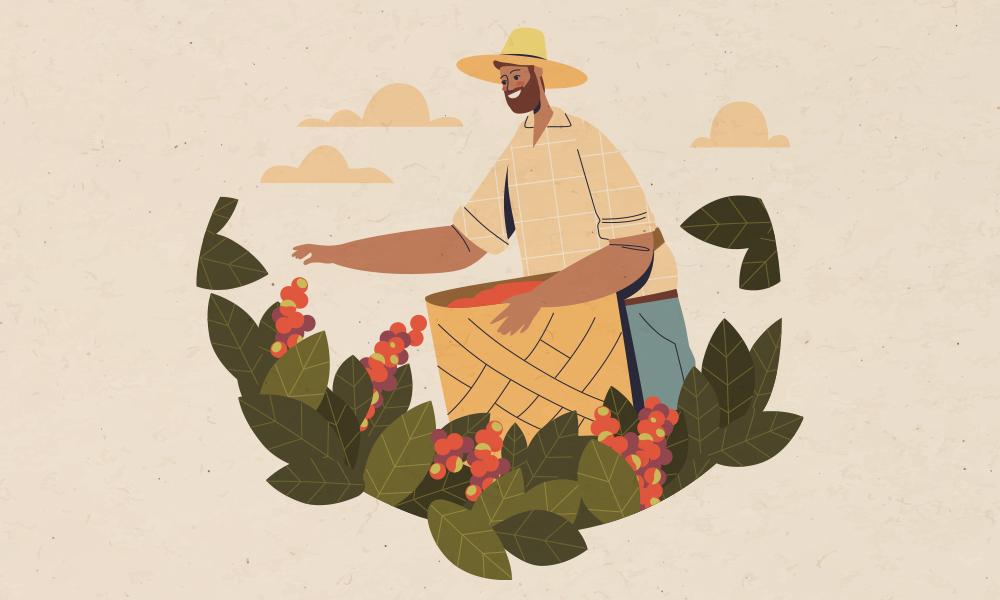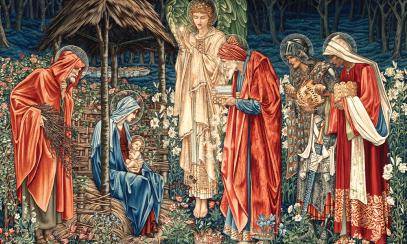
The Pastoral Care of Migrants is Care for Christ
South Carolina welcomes domestic migrants and seasonal agricultural workers annually to bring produce and other goods into our grocery stores. In fact, our state is consistently in the top 10 for workers brought into the U.S. from Latin America for general farm work and harvesting. Men and women travel here for work in tobacco fields in the Pee Dee, fruit fields in the Lowcountry, or harvesting peaches in the Upstate.
South Carolina welcomes domestic migrants and seasonal agricultural workers annually to bring produce and other goods into our grocery stores. In fact, our state is consistently in the top 10 for workers brought into the U.S. from Latin America for general farm work and harvesting. Men and women travel here for work in tobacco fields in the Pee Dee, fruit fields in the Lowcountry, or harvesting peaches in the Upstate.
The majority come from Mexico, and the population is heavily Catholic. Because of this, we have pastoral duties to care for them and their spiritual well-being while they live and work here.
Pope Francis, recalling World Day for Migrants and Refugees — which will be celebrated Sept. 25 this year — said the “presence of migrants and refugees represents an enormous challenge, but it is also an opportunity for cultural and spiritual growth for all. Thanks to them, we have the opportunity to better understand the world and the beauty of its diversity. We can mature in humanity and together build a bigger ‘us’.”
Pastoral care for migrants will always be to extend the borders of our hearts and minds. Above all, we leave aside the prejudices that paralyze people; we demonstrate that the presence of the “other” is a beautiful opportunity to recognize our limitations; and we discover the beauty of brotherhood in diversity, which invites us to relate to each other respectfully.
Therefore, what we must keep in mind when carrying out our ministry with migrants is the following:
AS A FOREIGNER
We must see Christ as “foreigner.” We see the face of Christ in every migrant and neighbor when we remember the one who was born in a manger and whose family fled to Egypt as foreigners. He assumed the human condition as migrant and refugee, and Christ’s family experienced the fundamental journey of his pilgrim people (Mt 2:13). Therefore, all pastoral agents must have a deep commitment to migrants in our church and society.
VISION OF FAITH
We must have a vision of faith. Our pilgrim Church has always viewed in migrants the image of Christ when he said, “I was a stranger, and you welcomed me” (Mt 25:35). Therefore, all the difficulties of migrants are an appeal to our faith and to the love of each other, to feel called to heal the evils that arise from migrations and those who live it, then working to discover God's plan in these realities.
AT THE CENTER
Christ must be at the center. He has always shown charity to others, and this attitude drives us to accompany migrants in the difficulties they have on their pilgrimage. Are we not all pilgrims?
Therefore, the Lord challenges each of us as Christians to respond with generosity and good will to problems that our brothers and sisters face. Like the Good Samaritan, we can help the stranger to bind up and heal wounds and show solidarity without judging their origin. The Samaritan showed his sensitivity and love to the vulnerable who needed it most (Lk 10:30-35).
Catholics are called to commit themselves to the cause of migrants and give witness to the Christian life, helping them in their needs. Faced with this reality, Jesus walks with migrants, helping them to have hope in the midst of the uncertainties in which they live.
We return to the complete text of Matthew, which invites us to see the presence of Christ in each migrant worker when Jesus tells us: “For I was hungry and you gave me food, I was thirsty and you gave me drink, a stranger and you welcomed me, naked and you clothed me, ill and you cared for me, in prison and you visited me … Amen, I say to you, whatever you did for one of these least brothers of mine, you did for me” (Mt 25:35-36, 40).
Sister Guadalupe Flores, OLVM, is the coordinator of Adult Faith Formation for the Office of Hispanic Ministry. Email her at gflores@charlestondiocese.org.


